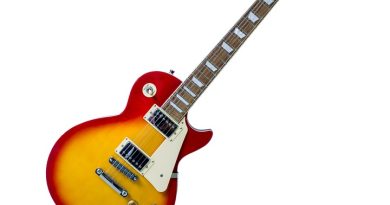How to Improve Your Ear for Playing Guitar: Top Tips and Strategies
How to Improve Your Ear for Playing Guitar: Top Tips and Strategies
Playing the guitar is not just about knowing how to strum chords and play scales. It requires a good ear for music in order to truly excel. Developing your ear for playing guitar can be a challenging but rewarding process. By training your ears, you will be able to pick up on subtle nuances in music, play by ear, and improvise more effectively. In this article, we will explore some top tips and strategies to help you improve your ear for playing guitar.
1. Listen to a Variety of Music
One of the best ways to develop your ear for playing guitar is to listen to a wide range of music styles and genres. By exposing yourself to different sounds, rhythms, and melodies, you will become more attuned to the nuances of music. Pay attention to how different artists use chord progressions, scales, and dynamics in their songs. This will help you develop a better understanding of music theory and improve your ability to identify chords and melodies by ear.
2. Transcribe Music
Transcribing music is a valuable exercise for improving your ear for playing guitar. Try to transcribe your favorite songs by listening to them and figuring out the chords, melodies, and rhythms by ear. This will help you improve your listening skills and train your ear to pick up on subtle details in music. Transcribing music is also a great way to learn new songs and develop your repertoire as a guitarist.
3. Practice Playing by Ear
Playing by ear is an essential skill for any guitarist. Instead of relying solely on sheet music or tabs, try to play songs by ear. Start by listening to a song and identifying the key, chords, and melody. Then, try to play along with the song using your ear to guide you. This will help you develop a better sense of pitch, timing, and phrasing, and improve your overall musicality as a guitarist.
4. Learn to Recognize Intervals
Intervals are the building blocks of music theory and play a crucial role in developing your ear for playing guitar. By learning to recognize intervals, you will be able to identify chord progressions, melodies, and harmonies more easily. Practice listening to different intervals and try to associate them with familiar songs or melodies. This will help you develop a better understanding of how notes relate to each other and improve your ability to play by ear.
5. Play with Other Musicians
Playing with other musicians is a great way to improve your ear for playing guitar. By jamming with other guitarists, bassists, drummers, and singers, you will develop your listening skills and learn to adapt to different musical styles and dynamics. Playing with others will also help you improve your timing, phrasing, and improvisation skills. Collaborating with other musicians is a fun and rewarding way to enhance your musical abilities and expand your musical horizons.
6. Use Ear Training Apps and Tools
There are many ear training apps and tools available that can help you develop your ear for playing guitar. These apps offer exercises and games to improve your pitch recognition, interval identification, and chord progression skills. By using ear training apps regularly, you can strengthen your listening skills and become a more confident and proficient guitarist. Some popular ear training apps include Perfect Ear, EarMaster, and Theta Music Trainer.
7. Record Yourself
Recording yourself playing guitar is a valuable tool for improving your ear for music. By listening back to your recordings, you can identify areas for improvement and track your progress over time. Pay attention to your tone, timing, and phrasing, and try to identify any weaknesses or inconsistencies in your playing. Recording yourself playing guitar will help you develop a more critical ear and improve your overall musicianship.
In conclusion, developing your ear for playing guitar is a lifelong process that requires dedication, practice, and patience. By listening to a variety of music, transcribing songs, playing by ear, learning intervals, playing with other musicians, using ear training apps, and recording yourself, you can improve your listening skills and become a more versatile and expressive guitarist. Remember, developing your ear for playing guitar is a journey, not a destination. Keep practicing, experimenting, and exploring new musical ideas, and your ear for music will continue to grow and evolve.






